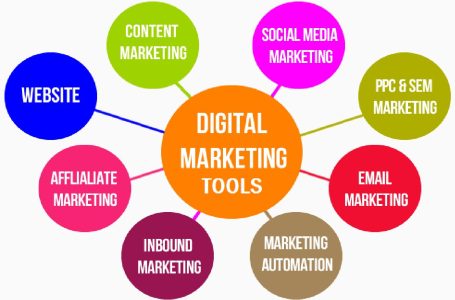Freelance Definition
Freelance refers to an employment arrangement where individuals work for themselves as independent contractors rather than being employed by a company on a long-term basis. Freelancers, also known as independent professionals or gig workers, provide services to clients on a temporary or project basis. They are not committed to a single employer and have the flexibility to work with multiple clients simultaneously.
Freelancers can offer various skills and services, including writing, graphic design, programming, marketing, consulting, and more. It economy has grown significantly in recent years, facilitated by online platforms that connect freelancers with clients seeking specific services.
Origin of the word freelance
The term “freelance” has an interesting historical origin. It is believed to have originated in the early 19th century and has its roots in medieval Europe.
The word “freelance” is a compound of two older words: “free” and “lance.” In medieval times, a “lance” referred to a soldier’s weapon, specifically a long spear. During the Middle Ages, mercenaries or soldiers not part of a formal army were sometimes called “free lances” because they could hire their services to different employers or lords.
Over time, the term evolved to describe individuals who offered their services independently rather than being bound to a single employer. By the 19th century, the term “freelance” began to be used more broadly to refer to professionals, such as writers and artists, who worked on a project-by-project basis rather than being employed full-time by a single entity.
Freelancing has continued to evolve, and in the contemporary context, it encompasses a wide range of professions and industries. Today, freelancers operate in a global, digital landscape, often connecting with clients and employers through online platforms and working on projects from anywhere in the world.
What is a freelancer for?
Being a freelancer brings with it certain advantages and benefits for the person, as well as for the company that will hire the professional. For example, becoming a digital freelancer in Barcelona or any other part of the world can help you:
Better time flexibility
This is perhaps the usefulness of being a freelancer. Currently, we live in a very demanding world in terms of activities, responsibilities, and more. Therefore, an ordinary job where you have to attend in person does not allow you the autonomy and schedule flexibility that a remote job provides you. Of course, everything will depend on your responsibilities towards the company that hires you. Still, you can often adjust your schedule to the work hours you must meet.
Such utility brings with it some benefits, such as the following to mention:
- Possibility of doing other activities.
- Take breaks when it comes to long work hours.
- Possibility of studying and working at the same time.
- Fulfill other responsibilities.
- Have a second job.
- You avoid wasting time on public transportation.
In addition to this, it is worth mentioning that you essentially choose the work schedule. You can choose the morning, afternoon, or night shift. It depends on your other responsibilities and what you find most comfortable and efficient when working.
No physical space is required
For this type of work, you can carry it out from anywhere and at any time. Furthermore, enabling a particular space to carry out the assigned tasks is unnecessary. The only thing needed is a computer capable of meeting your work requirements. Whether you only work with Google Docs or use programming programs, you will need excellent and decent enough equipment to work without complications or obstacles.
You are the one who takes the reins and responsibilities of your work
This is a great advantage for remote workers since their performance and results largely depend on themselves and not an entire department. Sure, there are jobs like web programming and mobile app development where you must work with others. However, you can also be the leader and solely responsible for an entire project. Having specific skills and knowledge is necessary to opt for this second option.
Possibility of learning and personal and professional development
If you wonder what the simple fact of working as a freelancer can do for you, it’s that you can dedicate more time to your personal and professional development. On the one hand, you have more time to focus on your skills; on the other, you can take online courses. This can significantly help you since knowledge and skills in the digital field are highly valued. While you work in the afternoons, you can dedicate the mornings to watching a free or paid course, depending on your current options.
Characteristics of a freelancer

In this regard, it is essential to mention that there is a vast difference between being just another freelancer and one who is successful and whose results speak for themselves. This is a critical point that can make a difference on a professional and economic level. So, let’s focus on the following characteristics: a successful freelancer with stable professional training.
The discipline
You will think that it is a general characteristic and of minor importance, but keep in mind that discipline beats talent by far. At a sporting and professional level, the fact that a person is disciplined means that they are a valuable resource for any company, organization, or institution. This implies that:
- You must pay attention to the notes.
- Be responsible with tasks and assignments.
- Consistently deliver your work within the stipulated date.
- Comply with standard requirements.
- Be constant and, above all, be efficient at work without lowering quality.
The first impression of many when reading this is that it is nothing out of the ordinary, but maintaining a rhythm and not reducing productivity and results is the most complicated. And if you don’t have good discipline, everything will be difficult for you.
Have initiative for problems
Those workers who have the initiative to solve problems in their field or in general that, in a certain way, affect and involve them are highly valued. Therefore, a characteristic that you should take into account is this. With this, we do not mean that you have to be on the lookout and be the one who solves everything. But if it is valued that you can contribute ideas to resolve it, you can even be that worker who solves said problem before they request help. This considers whether it is in your department or has to do with the functions you carry out.
Be fast in your work area.
There aren’t too many details; you must be as fast as possible when doing your work without affecting its quality. For example, let’s imagine you are a professional mass photo editor. They send you a pack of 1000 photos to deliver within 2 hours. If you have sufficient skill and knowledge of the appropriate programs, correcting such several images can take no more than 25 minutes, although it may seem like a large amount.
This same example can be applied to any area. Of course, the more knowledge and skills you have, the less time you will take to do a job. And if it’s something mechanical to some degree, after a while, you’ll find it easy and do it quickly.
You learn the value and balance between time, work, and skills.
Something that you don’t usually learn with traditional jobs is that, by being a freelancer, you know how much your services, skills, and the time you dedicate to work are worth. Once you start to earn your first income, over time, you realize that traditional job offers are not even close to what you should make. Remember that it does not always apply since this depends on your work’s results.
For example, if you are a content writer, the cost of your service will be higher or lower depending on how quickly you manage to position an article in search engines like Google. Someone who achieves such results with a month of continuous work will not earn the same as someone who takes more than three months.
Who can be freelance?
In other words, anyone with internet access and a computer to work can be a freelancer. Now, from there to being a good freelancer or one in demand is a big difference. Workers of this type stand out for having an excellent command over their area and can offer a quality service that can meet the needs of companies looking for remote workers. As for payment, this depends on the job offers, but in general, the dollar is used as the payment currency or, failing that, the euro.
Likewise, to be a freelancer, you have to:
- Have a portfolio with work done that can be verifiable.
- Have results that work for the company you intend to work for.
- Have the necessary skills and abilities according to the market niche.
- Have minimum experience as requested in job offers.
With these simple aspects, you can start to consider yourself a freelancer or not. Remember that to get a job remotely, you must have contacts or, failing that, a good reputation on online platforms such as LinkedIn and similar networks.
Most in-demand freelance jobs
The most in-demand jobs depend on the location you are in. Some are simpler, and others require a certain level of management.
Among the most requested currently are:
- Video editors for social networks, weddings, and social events.
- Community managers.
- SEO consultant.
- Everything that has to do with the field of programming.
- Data analysis or big data.
- Prompt creators for artificial intelligence.
- Graphic designers.
- Locution and narration.
- Cryptocurrency development.
- Cybersecurity.
By this, we do not mean that these are the only fields you can dedicate yourself to. There are many types of jobs on the Internet that can provide you with a constant source of income. You can work as a professional photo retoucher or even be responsible for managing and administering a company remotely.
What do I need to be a freelancer?
To be very specific with this topic, take into account the following aspects that everyone must have if they want to have a career as a freelancer:
- Be clear about the market niche you want to focus on.
- Have an acceptable level in terms of the functions you offer.
- Possess the necessary skills and knowledge about the area in which you work.
- Be able to handle specialized software.
- Have a digital portfolio where you can demonstrate what your work and projects have been so far.
- Have a portfolio or client history.
- Have a follow-up where your clients leave evidence of the quality of your service.
Freelance work platforms
As for how you can find remote jobs, there are many on the Internet. Some of the most recognized and safe ones that do work are the following:
Freelancer
It is one of the few online platforms You will find job offers in English, and other languages here. Many established and well-known freelancers are here, so getting a job is complex.
Workana
As for Workana, it is an excellent option for those starting in this world of remote work. Here, the popularity of the worker is taken into account. That is, the more fantastic your reputation you have, the more likely you will get a job once you apply.
Fiverr
Create an account on Fiverr if you have a good command of English. Here, most of the job offers are found in this language, in addition to being a good site for those with good digital work experience.
I am a freelancer.
This gives you two options once you enter its official page:
- Hire a freelancer.
- Work online.
On the same homepage, you will see many market niches you can dedicate yourself to or begin to dedicate yourself to if you are starting from programming web pages and apps to managing social networks, advertising, and marketing.
Conclusion
Freelancing is a work arrangement where individuals, known as freelancers, provide services to clients on a project basis without long-term employment commitments. It offers flexibility and autonomy but comes with challenges like income variability. Overall, the freelance model reflects the evolving nature of work in the digital age, where technology facilitates remote collaboration and empowers individuals to build their careers on their own terms.





